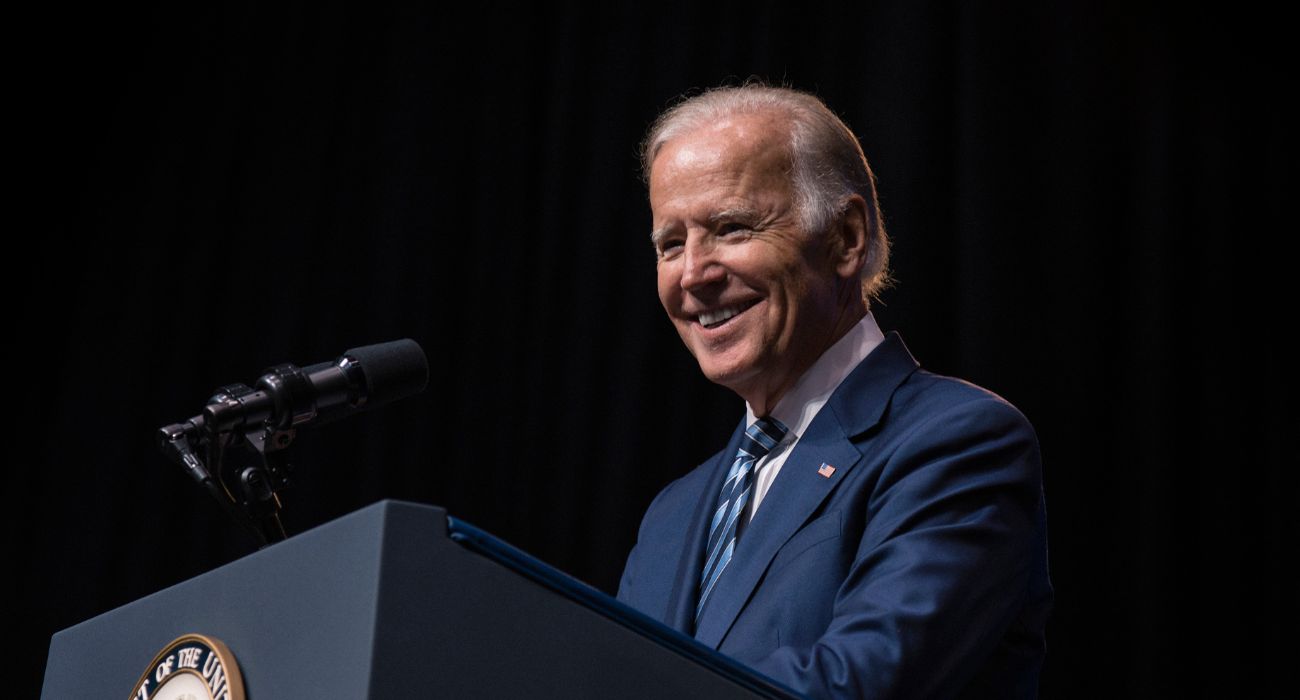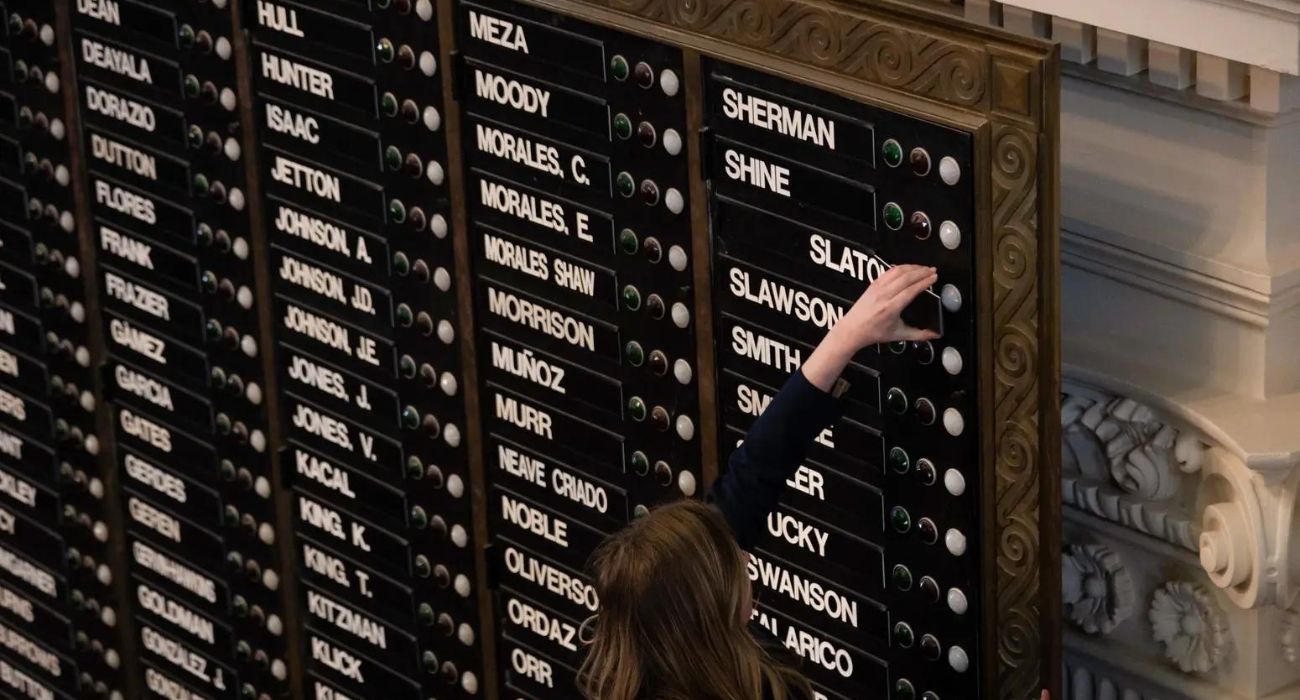Derek Cohen admits the conservative budget approved by the Texas Legislature surprised him.
Cohen, the Texas Public Policy Foundation’s vice president of policy, said the legislature did solid work on fiscal stewardship. Expectations were that the state would face a budget shortfall of several billion dollars, but that didn’t happen.
“The legislature convened and decided to issue less public spending than they were planning on doing, which, in and of itself, is something that, I don’t know — you know the emoji of the guy’s head exploding? That was me when I first read that,” Cohen said. “Secondly, they passed the conservative Texas budget.”
Cohen discussed the budget and other subjects at the opening round of the TPPF’s first State of the Taxpayer Tour, sponsored by the Lone Star Legacy Society.
Texas Public Policy Foundation Vice President of National Initiatives Chuck DeVore served as the master of ceremonies for the event, held at the TPPF Theater in Austin. Brian Phillips, the foundation’s chief communications officer, spoke along with Cohen.
Cohen said it was a successful legislative session.
“We provided better health-care options,” he said. “As conservatives, we’ve been 10 years against Obamacare. That’s not a new position, but we very rarely actually advocate what it is that we are for. This session, we saw all sorts of forms of alternative coverage be permitted by the legislature. We saw the legislature pass historic price transparency that actually has some enforceable teeth. We saw all sorts of innovation around getting prescription drugs to indigent populations in a way that actually helps the state budget rather than hurts it.”
When asked to grade the session, Cohen demurs, giving it an “incomplete,” the same as Kevin Roberts, the foundation’s CEO.
“Unfortunately, there were some educational opportunities where the ball was dropped, but I want to talk about certain things like the micro-grants for supplemental instructional materials and services for special-needs kids,” Cohen said. “That right there is one of the most important bills and it is one of the most pro-education-freedom bills ever passed.”
He said progress was made on child welfare, thanks to the passage of House Bill 567, an omnibus child welfare-reform package.
“Not only are we making sure that they’re doing what they’re supposed to, we’re going to make sure that they’re getting external audits that are saying they’re doing what they’re supposed to,” he said.
The legislature also protected the Second Amendment, passing House Bill 2622, which declared Texas a sanctuary state.
“I can’t begin to stress how important this is,” Cohen said. “The Biden gun control agenda was looking to incentivize local agencies whether they be liberal sheriffs or police departments — with our own federal tax money — to enforce gun laws that nobody wanted to see passed.”
He said bail reform needs to happen, as well as a reduction in taxpayer-funded lobbying, and tax-relief policies, both for individuals and local tax-break plans. Charter schools also continue to need state support.
“I am sure that we’ll probably see that come again probably in the not-too-distant future,” Cohen said.
He said the left made a “huge strategic mistake” by poorly branding “this whole defund-the-police movement.
“The people are not, especially Texans, even in Austin, not supportive of that at all,” Cohen said. “They obviously want there to be fair policing. They want better training but this whole defund-the-police movement, it does not have support. If you defund the cops and your crime starts to go up for whatever reason, they’re going to blame that and people aren’t going to stand for it and they’re going to demand that the streets are safe.”
Phillips said conservatives passed effective health care legislation. Instead of being opposed to Democratic plans, they came up with their own and got it across the finish line. They also blocked Medicaid expansion, showing it was an expensive mistake for other states.
He said there was some success on reducing human trafficking.
“I want to bring that up because there’s a massive crisis at the border as a result of this administration that’s only going to get worse,” he said.
Phillips said workforce development also was boosted.
“We had a lot of really good reforms and ideas in terms of developing the workforce to make sure that, yes, we can give people a hand up but we were very strategic in the way that we went about that,” he said.
Phillips also said allegations of racism linked to voter-integrity bills were baseless and ugly, revealing the “nastiness of the left.
“Despite the fact the media never asked them to come up with an example of voter suppression, they’ll ask us, ‘Well, where’s the voter fraud? Where’s it at?’ And we’ll give them lists and reams and show them people who are being prosecuted and people who are sitting in jail right now because of voter fraud.”
Court cases and numerous recounts failed to reveal any examples of widespread voter fraud during the 2020 election.
Phillips also noted the left and right worked together to end the Chapter 313 program, which both see as corporate welfare at the expense of taxpayers.
DeVore said a growing reliance on wind and solar power remains a concern. The only solution is for renewable fuels to pay for the costs of their unreliable nature. The February winter storm was a wakeup call, DeVore said, and there has already been a power disruption in Texas this spring.
DeVore called the failure to pass a comprehensive election-reform bill a disappointment.
Mail-in voting increased markedly in 2020 due to the COVID-19 pandemic, rising to 9% after hitting just 1.8% in 2018. Mail-in ballots require a signature that is checked, often by a three-member panel.
The bill would have required voters, when they apply for a mail-in ballot and when they turn it in, to include their driver’s license number, their state ID number or the last four digits of their Social Security number.
“That would take precedence over the signature, which again is far more subjective,” DeVore said. “That was controversial, and the bill was killed with a walkout. We expect if a special session is called, and we certainly expect one will be called just after Independence Day, that will be one of the measures that will be back on the list, on the docket to try to finish up the unfinished business of the 2021 legislative session.”
Cohen said the perception that the pandemic impacted the session is not completely accurate.
“A lot of people think that in the legislative session, that, you know, things were basically slowed to a halt, and that is not exactly true,” he said. “If you look at the numbers, only 5% fewer bills were filed than in the 86th session in 2019, however 25 fewer bills were passed. Now we’re all limited-government folks, but that is a marked break from history.”
He said support services were understaffed and “logistical hurdles” also played a part, such as people being asked to self-test for COVID-19, room cleansing before hearings could be held, and other delays in the process. Winter Storm Uri played a smaller role in delaying legislation, in part because it occurred in February.
Cohen said he sees a glass much more than half-full. Upcoming special sessions are an opportunity to address pending issues.
“Instead of mourning that which wasn’t, we should be optimistic of the opportunity to come and revisit these issues,” he said.






